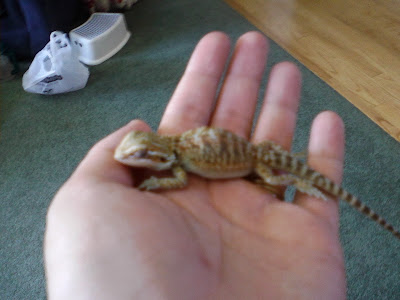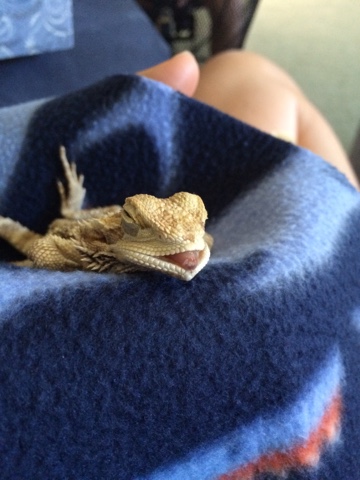Dark Spots on Bearded Dragon Belly: Causes, Treatment and Prevention
Introduction
Bearded dragons are friendly and popular pets that are easy to take care of. They require minimal attention and have a life-span of around 8 to 12 years. Being a part of the lizard family, they have different skin patterns and textures, and adding beauty to their appearance.
However, as an owner, you need to be cautious of any signs of health issues among your bearded dragons. One of the common signs is dark spots on their belly. As a beginner, you might not be familiar with this issue. This blog post will guide you through the causes, treatment and prevention of dark spots on your bearded dragon’s belly.
Causes of Dark Spots on Bearded Dragon Belly
There are various reasons why your bearded dragon might develop dark spots on their belly. Here are some of the common causes:
1. Skin Discoloration
Bearded dragons can naturally have dark spots on their belly, much like our skin. However, if new spots appear or the existing spots suddenly darken, it might be a symptom of skin infection, which is often caused by injuries or bacterial or fungal infections.

2. Parasites Infestation
Bearded dragons can get parasites from their diet or surroundings that can infect their skin, causing dark spots on their belly. Common parasites include mites or ticks, which can be easily seen by the naked eye.

3. Metabolic Bone Disease (MBD)
MBD is a common health issue among bearded dragons, caused by a lack of calcium, vitamin D3 or UVB. MBD causes the bones to become brittle, resulting in fractures and deformities. One of the symptoms of MBD is dark patches on the belly, which can indicate secondary liver disease.

Treatment for Dark Spots on Bearded Dragon Belly
The treatment for dark spots on your bearded dragon’s belly depends on the root cause. Here are some tips to help you care for your bearded dragon:
1. Clean and Disinfect
If the dark spots are caused by bacterial or fungal infections, clean and disinfect the affected area in your bearded dragon’s enclosure. Use a reptile-safe disinfectant and hot water to clean where possible. Avoid harsh chemicals or abrasive cleaning materials that may cause further damage.

2. Improve Diet
Ensure your bearded dragon’s diet is balanced and provides necessary nutrients like calcium, vitamin D3 and UVB. Offer fresh vegetables, fruits and insects. Offer supplements if necessary or visit a veterinarian.

3. Seek Professional Help
If the symptoms persist or worsen, seek professional help from a veterinarian. More severe cases may need medical treatment, such as antibiotics or surgery.
Prevention for Dark Spots on Bearded Dragon Belly
Prevention is the best way to avoid dark spots on your bearded dragon’s belly. Here are some guidelines to keep your pet healthy and happy:
1. Regular Cleaning
Clean your bearded dragon’s enclosure regularly, including accessories and bedding. Avoid using harsh chemicals or cleaning materials that may cause harm to your pet.
2. Balanced Diet
Ensure your bearded dragon’s diet is balanced and provides necessary nutrients like calcium, vitamin D3 and UVB. Offer fresh vegetables, fruits and insects. Offer supplements if necessary or visit a veterinarian.
3. Regulate Temperature and Humidity
Provide proper basking areas for your bearded dragon to regulate temperature and humidity. Make sure the temperature and humidity levels are appropriate for your bearded dragon’s species.
4. Regular Check-ups
Schedule regular check-ups with a veterinarian to ensure your bearded dragon is healthy and happy.

Conclusion
Dark spots on your bearded dragon’s belly could indicate a health issue. As a beginner, it can be overwhelming to diagnose and treat. However, by following the guidelines mentioned here, you will be able to care for your bearded dragon and keep them healthy and happy.
